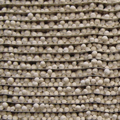Umweltschutz beim Biertrinken
TUM-Brauingenieure erforschen Energieeinsparung im Brauprozess
07.09.2009, Pressemitteilungen
Ein frisch gezapftes, kühles Bier – das ist für Viele ein Hochgenuss. Doch eigentlich müsste man beim Trinken ein schlechtes Gewissen haben: Denn Bier ist in der Herstellung eines der energieintensivsten Lebensmittel überhaupt. Brauingenieure der Technischen Universität München (TUM) arbeiten daran, die Energiebilanz des Gerstensaftes zu verbessern. Sie erforschen eine neue Verfahrenskombination, mit der man beim Brauen bis zu 20 Prozent Energie einsparen könnte. Auf der Fachmesse drinktec in München (14.-19. September) stellen die Weihenstephaner Wissenschaftler das Herzstück ihrer energiesparenden Idee aus.
Seit über hundert Jahren gilt für Brauereien ein technisches Grundgesetz: Sie alle brauchen einen Dampfkessel, um Bier zu brauen. Denn nur ein mächtiger Dampf-Kessel kann Temperaturen von 110 bis 160 Grad Celsius erzeugen, die zum Eindampfen des „Rohbiers“, der so genannten Würze, nötig sind. Dieser Prozess benötigt sehr viel Energie: Fast die Hälfte des Gesamtenergieverbrauchs einer klassischen Brauerei, nämlich 45 Prozent, wird zur Würzebereitung benötigt. Seit Jahren tüfteln Ingenieure deshalb an Lösungen, die den Wärme- und Stromverbrauch im Brauwesen senken.
Eine ihrer Ideen ist der Einsatz vom Blockheizkraftwerken, die durch Kraft-Wärme-Kopplung sehr energieeffizient und umweltschonend arbeiten. Doch fürs Sudhaus eignet sich diese Technologie bisher leider nicht: Blockheizkraftwerke erzeugen neben Strom zwar auch Wärme, allerdings nur bis 90 Grad Celsius. Zum Würzeeinkochen sind aber mindestens 110 Grad Celsius notwendig. Ingenieure vom Lehrstuhl für Rohstoff- und Energietechnologie der TU München verfolgen seit August 2008 eine heiße Spur, um dieses Manko zu beheben: Sie kombinieren das Blockheizkraftwerk mit einem so genannten „Zeolithspeicher“.
Solche Speicher arbeiten thermochemisch, mittels Zeolith-Kugeln von 2-3 mm Durchmesser. Diese porösen Kügelchen bestehen aus Silikatmineralen und sind ein guter Wärmespeicher: Ein Gramm Zeolith hat eine innere Oberfläche von etwa 500 Quadratmetern. Diese Poren saugen sich mit Wasser voll. Wird das Zeolith erwärmt, trocknen die Kügelchen aus - der Speicher ist geladen. Sobald man wieder Wasser zuführt, setzen die Zeolith-Kugeln mit bis zu 250 Grad Celsius Wärme frei. Die Brauingenieure der TUM machen sich dieses thermochemische Prinzip zunutze, um die 90 Grad Celsius aus dem Blockheizkraftwerk fürs Sudhaus um die fehlenden 20 Grad Celsius aufzustocken.
Dazu wollen sie ein leeres Zeitfenster im Produktionsprozess nutzen. „Nachts braucht eine mittelständische Brauerei nur wenig Energie“, so Projektleiter Dr.-Ing. Winfried Ruß. „In dieser Zeit speisen wir die ungenutzte Wärme des Blockheizkraftwerks in den Zeolithspeicher ein.“ Tagsüber, wenn zum Würzekochen hohe Temperaturen gefragt sind, kann die zusätzliche Wärme zum gewünschten Zeitpunkt fast auf einen Schlag wieder ins Gesamtsystem eingespeist werden, sozusagen per „Wärme-Booster“ auf Knopfdruck. Damit rückt das ressourcenschonende Niedrigenergie-Bier in trinkbare Nähe.
Im Computer funktioniert die neu kombinierte Produktionskette schon perfekt. Der Praxistest beginnt jetzt: Die Forscher der TU München haben unter Mithilfe von Kollegen der RWTH Aachen am Standort Weihenstephan erstmals einen Versuchsstand gebaut, der die Vorgänge im Sudhaus mit der neuen Gerätekombination simuliert. Winfried Ruß ist neugierig auf die Messdaten: „Wir wissen bereits, dass es funktionieren wird. Aber wie viel Energieeinsparung möglich ist, wissen wir noch nicht.“ Die Forscher gehen von mindestens zehn Prozent aus.
Im zweiten Schritt werden die TUM-Ingenieure dann den Energiehaushalt der gesamten Brauerei nachstellen. Vom Reinigungssystem über Sudhaus sowie Gär- und Lagerkeller bis hin zur Flaschenabfüllung sollen dann alle Anlagen mit nur 90 Grad Celsius anstatt bis zu 160 Grad heißem Dampf beheizt werden. Dadurch und durch zusätzliche Abwärmenutzung erwarten die Forscher eine Energieeinsparung von insgesamt 20 Prozent. „Das ist mehr, als alle Energiesparmaßnahmen in der Brauindustrie der vergangenen zehn Jahre in der Summe gebracht haben“, so Ruß. Bis Mitte 2011 wird das Experiment abgeschlossen sein. Auf das Ergebnis warten kleine und mittlere Brauereien gespannt: Erste Interessenten für das anschließende Pilotprojekt haben sich schon gemeldet.
Womöglich können wir also schon in ein paar Jahren echtes „Energiespar-Bier“ trinken – mit gesundem Durst und einem grünen Gewissen. Die dazu nötige Technik kann man sich vom 14.-19. September schon auf der Fachmesse drinktec 2009 ansehen: Die Weihenstephaner Forscher der TU München stellen dort ein Modell des Zeolithspeichers aus. Kommen Sie uns besuchen: in Halle A4 auf dem Münchner Messegelände in Riem, Stand 335, täglich zwischen 9 und 18 Uhr.
Kontakt:
Privatdozent Dr.-Ing. Winfried Ruß
Lehrstuhl für Rohstoff- und Energietechnologie
Abt. Thermische Verfahren
Technische Universität München
85350 Freising-Weihenstephan
Telefon: 08161 / 71 – 38 65
Email: winfried.russ@wzw.tum.de
Hintergrund:
Das Forschungsprojekt „Entwicklung einer Verfahrenskombination zur energieeffizienten Wärmeversorgung von Brauereien“ wird von der DBU - Deutsche Bundesstiftung Umwelt mit 400.000 Euro gefördert und in enger Zusammenarbeit mit der Brauereimaschinenfabrik und Apparatebauanstalt Kaspar Schulz, Bamberg umgesetzt. Das Vorhaben, das der Lehrstuhl für Rohstoff- und Energietechnologie der TU München zusammen mit Kollegen vom Lehrstuhl für Technische Thermodynamik der RWTH Aachen bearbeitet, läuft noch bis August 2011.
Kontakt: presse@tum.de
Mehr Information
| 090907_PI-Energiesparbier.pdf |
Druckversion dieser Pressemitteilung,
(Type: application/pdf,
Größe: 173.5 kB)
Datei speichern
|
|
| 090907_energy-efficient_beer.pdf |
Print version of this press release,
(Type: application/pdf,
Größe: 172.2 kB)
Datei speichern
|




